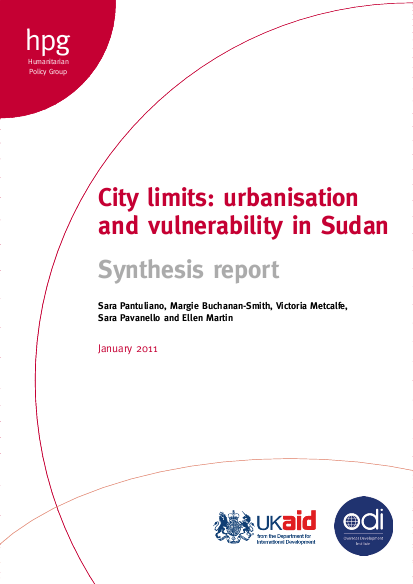
Sudan is urbanising rapidly. Although the trend is not new (and is consistent with a trend towards greater urbanisation across Sub-Saharan Africa1), the pace in Sudan appears to be accelerating. For a country of its size Sudan has relatively few cities, which means that the population drift from rural areas is focused on a small number of urban centres.
The Humanitarian Policy Group (HPG) at the Overseas Develop-ment Institute (ODI) has been commissioned by the Department for International Development (DFID) to carry out a study on urbanisation in Sudan. The overall objectives of the study are: • To deepen understanding of the drivers of urbanisation in different parts of the country, in relation to the broader economic, political and security context in Sudan. • To analyse the consequences of rapid urbanisation, socially, economically (paying particular attention to urban livelihoods) and environmentally, and in terms of urban infrastructure and the provision of services. • To assess the implications in terms of the vulnerability of urban populations to future hazards and shocks, and in terms of development opportunities. • To identify how international aid can best engage with changing settlement patterns in Sudan, and the implications for humanitarian and development programming in the future. The study focuses on four urban centres, Nyala, Khartoum, Port Sudan and Juba, and a case study report has been produced for each city. This paper constitutes the Synthesis Report.
Resource collections
- Coordination
- Sudan humanitarian response
- UN Habitat - Urban Response Collection
- Urban Response - Urban Crisis Preparedness and Risk Reduction
- Urban Response Collection - Community Engagement and Social Cohesion
- Urban Response Collection - Economic Recovery
- Urban Response Collection - Environment and Climate Change
- Urban Response Collection - Housing, Land and Property
- Urban Response Collection - Urban Crisis Response, Recovery and Reconstruction
- Urban Response Collection - Urban Resilience